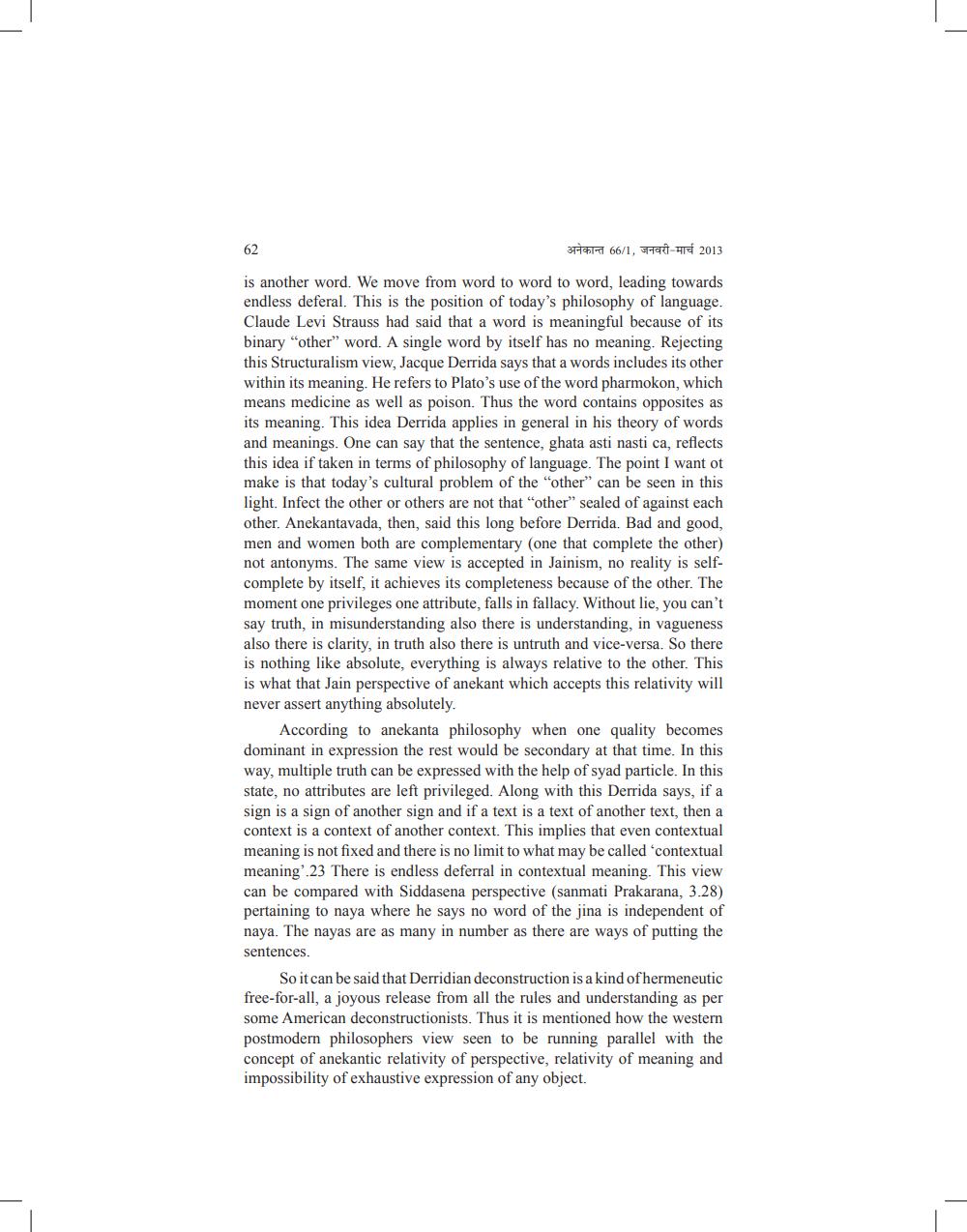________________
62
अनेकान्त 66/1 जनवरी-मार्च 2013
is another word. We move from word to word to word, leading towards endless deferal. This is the position of today's philosophy of language. Claude Levi Strauss had said that a word is meaningful because of its binary "other" word. A single word by itself has no meaning. Rejecting this Structuralism view, Jacque Derrida says that a words includes its other within its meaning. He refers to Plato's use of the word pharmokon, which means medicine as well as poison. Thus the word contains opposites as its meaning. This idea Derrida applies in general in his theory of words and meanings. One can say that the sentence, ghata asti nasti ca, reflects this idea if taken in terms of philosophy of language. The point I want ot make is that today's cultural problem of the "other" can be seen in this light. Infect the other or others are not that "other" sealed of against each other. Anekantavada, then, said this long before Derrida. Bad and good, men and women both are complementary (one that complete the other) not antonyms. The same view is accepted in Jainism, no reality is selfcomplete by itself, it achieves its completeness because of the other. The moment one privileges one attribute, falls in fallacy. Without lie, you can't say truth, in misunderstanding also there is understanding, in vagueness also there is clarity, in truth also there is untruth and vice-versa. So there is nothing like absolute, everything is always relative to the other. This is what that Jain perspective of anekant which accepts this relativity will never assert anything absolutely.
According to anekanta philosophy when one quality becomes dominant in expression the rest would be secondary at that time. In this way, multiple truth can be expressed with the help of syad particle. In this state, no attributes are left privileged. Along with this Derrida says, if a sign is a sign of another sign and if a text is a text of another text, then a context is a context of another context. This implies that even contextual meaning is not fixed and there is no limit to what may be called 'contextual meaning'.23 There is endless deferral in contextual meaning. This view can be compared with Siddasena perspective (sanmati Prakarana, 3.28) pertaining to naya where he says no word of the jina is independent of naya. The nayas are as many in number as there are ways of putting the
sentences.
So it can be said that Derridian deconstruction is a kind of hermeneutic free-for-all, a joyous release from all the rules and understanding as per some American deconstructionists. Thus it is mentioned how the western postmodern philosophers view seen to be running parallel with the concept of anekantic relativity of perspective, relativity of meaning and impossibility of exhaustive expression of any object.




